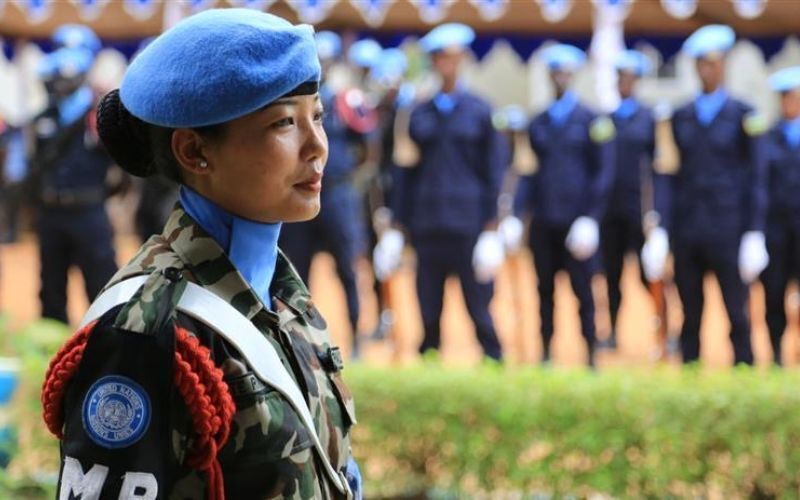Photo by UN//Nektarios Markogiannis
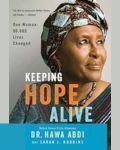
Abdi, Hawa, and Sarah J. Robbins. Keeping Hope Alive: One Woman: 90,000 Lives Changed (Grand Central Pub., 2013).
This is not just the story of a woman doctor in a war torn Islamic country risking her life daily to minister to thousands of desperate people, it's also an inspiring story of a divorced woman and her two daughters, bound together on a mission to rehabilitate a country.
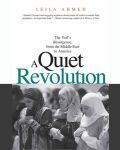
Ahmed, Leila. A Quiet Revolution: The Veil's Resurgence, from the Middle East to America (Yale UP, 2011).
In Cairo in the 1940s, Leila Ahmed was raised by a generation of women who never dressed in the veils and headscarves their mothers and grandmothers had worn. To them, these coverings seemed irrelevant to both modern life and Islamic piety. Today, however, the majority of Muslim women throughout the Islamic world again wear the veil. Why, Ahmed asks, did this change take root so swiftly, and what does this shift mean for women, Islam, and the West? When she began her study, Ahmed assumed that the veil's return indicated a backward step for Muslim women worldwide. What she discovered, however, in the stories of British colonial officials, young Muslim feminists, Arab nationalists, pious Islamic daughters, American Muslim immigrants, violent jihadists, and peaceful Islamic activists, confounded her expectations. Ahmed observed that Islamism, with its commitments to activism in the service of the poor and in pursuit of social justice, is the strain of Islam most easily and naturally merging with western democracies' own tradition of activism in the cause of justice and social change. It is often Islamists, even more than secular Muslims, who are at the forefront of such contemporary activist struggles as civil rights and women's rights. Ahmed's surprising conclusions represent a near reversal of her thinking on this topic. Richly insightful, intricately drawn, and passionately argued, this absorbing story of the veil's resurgence, from Egypt through Saudi Arabia and into the West, suggests a dramatically new portrait of contemporary Islam.
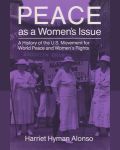
Alonso, Harriet Hyman. Peace as a Woman's Issue. (Syracuse University Press 1993).
A history of the ideologies and personalities of the feminist peace movement in the US. This study explores: connections between militarism and violence against women; women as the mothers of society; women as naturally responsible citizens; and the desire to be independent of male control.
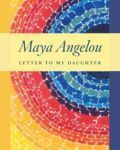
Angelou, Maya. Letter to My Daughter (Virago, 2009).
Dedicated to the daughter she never had but sees all around her, Letter to My Daughter reveals Maya Angelou’s path to living well and living a life with meaning. Here in short spellbinding essays are glimpses of the tumultuous life that taught Angelou lessons in compassion and fortitude: how she was brought up by her indomitable grandmother in segregated Arkansas, taken in at thirteen by her more worldly and less religious mother, and grew to be an awkward six-foot-tall teenager whose first experience of loveless sex paradoxically left her with her greatest gift, a son.
Whether she is recalling lost friends such as Coretta Scott King and Ossie Davis, extolling honesty, decrying vulgarity, explaining why becoming a Christian is a “lifelong endeavor,” or simply singing the praises of a meal of red rice, Maya Angelou writes from the heart to millions of women she considers her extended family.
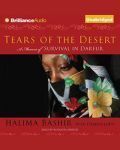
Bashir, Halima, and Damien Lewis. Tears of the Desert: A Memoir of Survival in Darfur (One World Trade Paperbacks, 2009).
Born into the Zaghawa tribe in the Sudanese desert, Halima Bashir received a good education away from her rural surroundings (thanks to her doting, politically astute father) and at twenty-four became her village’s first formal doctor. Yet not even Bashir’s degree could protect her from the encroaching conflict that would consume her homeland. Janjaweed Arab militias savagely assaulted the Zaghawa, often with the backing of the Sudanese military. Then, in early 2004, the Janjaweed attacked Bashir’s village and surrounding areas, raping forty-two schoolgirls and their teachers. Bashir, who treated the traumatized victims, some as young as eight years old, could no longer remain quiet. But breaking her silence ignited a horrifying turn of events. Raw and riveting, Tears of the Desert is the first memoir ever written by a woman caught up in the war in Darfur. It is a survivor’s tale of a conflicted country, a resilient people, and an uncompromising spirit.
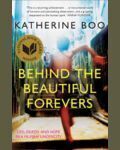
Boo, Katherine. Behind the Beautiful Forevers (Random House, 2012).
In this brilliant, breathtaking book by Pulitzer Prize winner Katherine Boo, a bewildering age of global change and inequality is made human through the dramatic story of families striving toward a better life in Annawadi, a makeshift settlement in the shadow of luxury hotels near the Mumbai airport. As India starts to prosper, the residents of Annawadi are electric with hope. Abdul, an enterprising teenager, sees “a fortune beyond counting” in the recyclable garbage that richer people throw away. Meanwhile Asha, a woman of formidable ambition, has identified a shadier route to the middle class. With a little luck, her beautiful daughter, Annawadi’s “most-everything girl,” might become its first female college graduate. And even the poorest children, like the young thief Kalu, feel themselves inching closer to their dreams. But then Abdul is falsely accused in a shocking tragedy; terror and global recession rock the city; and suppressed tensions over religion, caste, sex, power, and economic envy turn brutal. With intelligence, humor, and deep insight into what connects people to one another in an era of tumultuous change, Behind the Beautiful Forevers, based on years of uncompromising reporting, carries the reader headlong into one of the twenty-first century’s hidden worlds—and into the hearts of families impossible to forget.
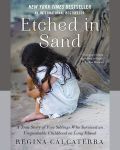
Calcaterra, Regina. Etched in Sand (William Morrow, 2013).
Regina’s Calcaterra memoir, Etched in Sand, is an inspiring and triumphant coming-of-age story of tenacity and hope. Regina Calcaterra is a successful lawyer, New York State official, and activist. Her painful early life, however, was quite different. Regina and her four siblings survived an abusive and painful childhood only to find themselves faced with the challenges of the foster-care system and intermittent homelessness in the shadows of Manhattan and the Hamptons.
A true-life rags-to-riches story, Etched in Sand chronicles Regina’s rising above her past, while fighting to keep her brother and three sisters together through it all. Beautifully written, with heartbreaking honesty, Etched in Sand is an unforgettable reminder that regardless of social status, the American Dream is still within reach for those who have the desire and the determination to succeed.
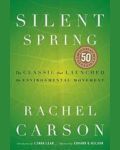
Carson, Rachel. Silent Spring (Econo-Clad, 1999).
Rachel Carson’s Silent Spring was first published in three serialized excerpts in the New Yorker in June of 1962. The book appeared in September of that year and the outcry that followed its publication forced the banning of DDT and spurred revolutionary changes in the laws affecting our air, land, and water. Carson’s passionate concern for the future of our planet reverberated powerfully throughout the world, and her eloquent book was instrumental in launching the environmental movement. It is without question one of the landmark books of the twentieth century.
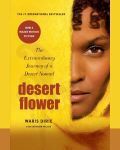
Dirie, Waris, and Cathleen Miller. Desert Flower: The Extraordinary Journey of a Desert Nomad (Virago, 2004).
Waris Dirie ran away from her oppressive life in the African desert when she was barely in her teens, illiterate and impoverished, with nothing to her name but a tattered shawl. She traveled alone across the dangerous Somali desert to Mogadishu—the first leg of a remarkable journey that would take her to London, where she worked as a house servant; then to nearly every corner of the globe as an internationally renowned fashion model; and ultimately to New York City, where she became a human rights ambassador for the U.N. Desert Flower is her extraordinary story.
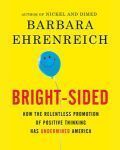
Ehrenreich, Barbara. Bright-sided: Bright-sided: How the Relentless Promotion of Positive Thinking Has Undermined America (Metropolitan, 2009).
A NEW YORK TIMES BESTSELLER
Americans are a "positive" people -- cheerful, optimistic, and upbeat: This is our reputation as well as our self-image. But more than a temperament, being positive is the key to getting success and prosperity. Or so we are told. In this utterly original debunking, Barbara Ehrenreich confronts the false promises of positive thinking and shows its reach into every corner of American life, from Evangelical megachurches to the medical establishment, and, worst of all, to the business community, where the refusal to consider negative outcomes--like mortgage defaults-- contributed directly to the current economic disaster. With the myth-busting powers for which she is acclaimed, Ehrenreich exposes the downside of positive thinking: personal self-blame and national denial. This is Ehrenreich at her provocative best--poking holes in conventional wisdom and faux science and ending with a call for existential clarity and courage.
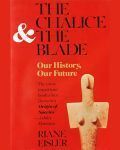
Eisler, Riane. The Chalice and the Blade (Pandora, 1996).
The legacy of the sacred feminine. The Chalice and the Blade tells a new story of our cultural origins. It showsthat warfare and the war of the sexes are neither divinely nor biologicallyordained. It provides verification that a better future is possible—and is in factfirmly rooted in the haunting dramas of what happened in our past.
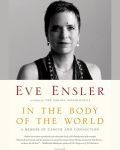
Ensler, Eve. In the Body of the World: A Memoir of Cancer and Connection (Picador, 2014).
Playwright, author, and activist Eve Ensler has devoted her life to the female body—how to talk about it, how to protect and value it. Yet she spent much of her life disassociated from her own body—a disconnection brought on by her father’s sexual abuse and her mother’s remoteness. “Because I did not, could not inhabit my body or the Earth,” she writes, “I could not feel or know their pain.” But Ensler is shocked out of her distance. While working in the Congo, she is shattered to encounter the horrific rape and violence inflicted on the women there. Soon after, she is diagnosed with uterine cancer, and through months of harrowing treatment, she is forced to become first and foremost a body—pricked, punctured, cut, scanned. It is then that all distance is erased. As she connects her own illness to the devastation of the earth, her life force to the resilience of humanity, she is finally, fully—and gratefully—joined to the body of the world. Unflinching, generous, and inspiring, Ensler's In the Body of the World calls on us all to embody our connection to and responsibility for the world.
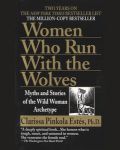
Estés, Clarissa Pinkola. Women Who Run with the Wolves: Myths and Stories of the Wild Woman Archetype (Ballantine, 1992).
"WOMEN WHO RUN WITH THE WOLVES isn't just another book. It is a gift of profound insight, wisdom, and love. An oracle from one who knows."
~ Alice Walker
Within every woman there lives a powerful force, filled with good instincts, passionate creativity, and ageless knowing. She is the Wild Woman, who represents the instinctual nature of women. But she is an endangered species. In WOMEN WHO RUN WITH THE WOLVES, Dr. Estés unfolds rich intercultural myths, fairy tales, and stories, many from her own family, in order to help women reconnect with the fierce, healthy, visionary attributes of this instinctual nature. Through the stories and commentaries in this remarkable book, we retrieve, examine, love, and understand the Wild Woman and hold her against our deep psyches as one who is both magic and medicine. Dr. Estés has created a new lexicon for describing the female psyche. Fertile and life-giving, it is a psychology of women in the truest sense, a knowing of the soul.
"This volume reminds us that we are nature for all our sophistication, that we are still wild, and the recovery of that vitality will itself set us right in the world."
~ Thomas Moore Author of Care of the Soul
"I am grateful to WOMEN WHO RUN WITH THE WOLVES and to Dr. Clarissa Pinkola Estés. The work shows the reader how glorious it is to be daring, to be caring, and to be women. Everyone who can read should read this book."
~ Maya Angelou
"An inspiring book, the 'vitamins for the soul' [for] women who are cut off from their intuitive nature."
~ San Francisco Chronicle
"Stands out from the pack . . . A joy and sparkle in [the] prose . . . This book will become a bible for women interested in doing deep work. . . . It is a road map of all the pitfalls, those familiar and those horrifically unexpected, that a woman encounters on the way back to her instinctual self. Wolves . . . is a gift."
~ Los Angeles Times
"A mesmerizing voice . . . Dramatic storytelling she learned at the knees of her [immigrant] aunts."
~ Newsweek
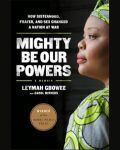
Gbowee, Leymah, and Carol Lynn. Mithers. Mighty Be Our Powers: How Sisterhood, Prayer, and Sex Changed a Nation at War: A Memoir (Beast, 2011).
In a time of death and terror, Leymah Gbowee brought Liberia’s women together—and together they led a nation to peace.
As a young woman, Leymah Gbowee was broken by the Liberian civil war, a brutal conflict that tore apart her life and claimed the lives of countless relatives and friends. Years of fighting destroyed her country—and shattered Gbowee’s girlhood hopes and dreams. As a young mother trapped in a nightmare of domestic abuse, she found the courage to turn her bitterness into action, propelled by her realization that it is women who suffer most during conflicts—and that the power of women working together can create an unstoppable force. In 2003, the passionate and charismatic Gbowee helped organize and then led the Liberian Mass Action for Peace, a coalition of Christian and Muslim women who sat in public protest, confronting Liberia’s ruthless president and rebel warlords, and even held a sex strike.
With an army of women, Gbowee helped lead her nation to peace—in the process emerging as an international leader who changed history. Mighty Be Our Powers is the gripping chronicle of a journey from hopelessness to empowerment that will touch all who dream of a better world.
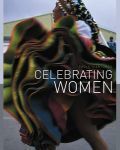
Gianturco, Paola. Celebrating Women (PowerHouse, 2004).
Twenty-five thousand Swazi virgins dance for the Queen Mother. In Spain, people who have had near-death experiences ride in open coffins and thank Santa Marta for their lives. Half-a-million Bolivians pray to Mother Earth and the Virgin Mary for cell phones, sewing machines, televisions, and Tudor houses. Polish girls float wreaths of wildflowers on the river. Berber divorcées invite Moroccan shepherds to marry them. In Thailand, an entire city honors the women who saved their ancestors from invaders. Couples from across the world race over obstacles in Finland’s World Wife Carrying Championships. In China, seafaring families ride in boats as a tribute to the Goddess of the Fishermen. And in the United States, women represent each of the fifty states in a competition for the famed title, Miss America.
In Celebrating Women, photographer Paola Gianturco trains her eye on the world’s most vibrant festivals that honor women as goddesses, warriors, lovers, healers, and athletes, among many other roles. These moving celebrations, idiosyncratic to their indigenous roots, take the form of parades, parties, competitions, and religious ceremonies. Gianturco spent five years photographing seventeen festivals in fifteen countries across five continents. Collected for the first time ever in a single edition, Gianturco provides insightful text describing the specific occasions and detailing their historic and cultural significance, culled from her extensive interviews with musicians, dancers, vendors, mask makers, costume designers, journalists, priests, governors, and spectators—not to mention a bona fide princess and king.
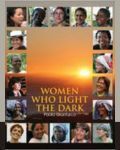
Gianturco, Paola. Women Who Light the Dark (PowerHouse, 2007).
Across the world, local women are helping one another tackle the problems that darken their lives—domestic violence, sex trafficking, war, poverty, illiteracy, discrimination, inequality, malnutrition, disease. These women may lack material resources, but they possess a wealth of an even more precious resource: imagination—their imaginations light the dark. Women in Morocco create and produce plays that educate illiterate people about women’s rights.
Girls in Zimbabwe compose and perform poetry that shocks communities into fighting child rape. In Viet Nam, counselors heal survivors of domestic violence with line dancing, art and games. Teachers in India invent puppet shows that help homeless children understand AIDS. Brazilian math teachers inspire girls from the favelas to learn arithmetic by originating fashion shows. Roma women in Slovakia collaborate with non-Roma women to design postcards, kindling communication in place of suspicion. Lesbians in Argentina develop and stage street skits, demonstrating against discrimination. A master ballet teacher instructs a thousand poor Cuban children in classical dance. Sometimes imagination takes the form of innovative strategies. In Nepal, women teach their sisters to drive taxis and guide treks, and in Nicaragua, to become welders, carpenters and electricians—all, supposedly, men’s jobs. In Kenya, mothers get wells dug so their daughters can go to school instead of walking seven hours to fetch water. In Cambodia, doctors and nurses conduct mobile clinics and arrange loans to give indigent women the health and funds to start businesses, foiling sex traffickers who try to lure women with promises of income. In Cameroun, medical specialists train traditional rulers and healers whose behavior has inadvertently spread AIDS, to become health educators. Recreational activists in the United States introduce women with disabilities to challenge courses, camping, whitewater rafting and swimming, empowering them to lead others who are disabled.
Travel with photojournalist Paola Gianturco: climb Annapurna; eat lunch while soldiers carry sandbags to the roof; watch a traditional healer at work; attend a Muslim reception with ambassadors, rabbis, bishops and cabinet ministers; witness a ceremony that welcomes indigenous babies to the world. Listen as 129 women in 15 countries on five continents describe their lives, dreams and work. They will inspire you with their courage, creativity and effectiveness as they kindle hope and possibilities for their families, communities, countries and our world.
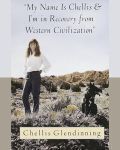
Glendinning, Chellis. My Name Is Chellis & I'm in Recovery from Western Civilization (Shambhala, 1994).
What is the relationship between addiction and the ecological crisis? How can we use the lessons of individual recovery to address our collective need to heal society and the Earth? Chellis Glendinning goes beyond the personal to the very heart of Western civilization to answer these questions, and she shows how we can use trauma recovery and deep ecology, along with the wisdom of native cultures, to reclaim our innate wholeness.
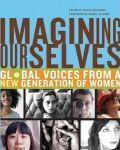
Goldman, Paula, and Hafsat Abiola. Imagining Ourselves: Global Voices from a New Generation of Women (New World Library, 2006).
Presenting the photography, paintings, poetry, fiction, songs, and essays of 105 young women from fifty-seven countries, Imagining Ourselves captures the energy of the first global generation of women. From Nasra Abubakar, a Somalian camel-farmer’s daughter who is the first in her family to go to college to Anita Khemka, who reflects on the generation gap between yesterday’s and today’s teenage women in urban India, the young women in this book will inspire and encourage you to take action to transform your own life and the world around you. Enlightening, uplifting, challenging, and funny, Imagining Ourselves demonstrates the power of each individual life and the collective power of today’s generation of women as a whole.
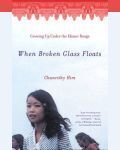
Him, Chanrithy. When Broken Glass Floats: Growing up under the Khmer Rouge (W.W. Norton, 2001).
Chanrithy Him felt compelled to tell of surviving life under the Khmer Rouge in a way "worthy of the suffering which I endured as a child."
In the Cambodian proverb, "when broken glass floats" is the time when evil triumphs over good. That time began in 1975, when the Khmer Rouge took power in Cambodia and the Him family began their trek through the hell of the "killing fields." In a mesmerizing story, Him vividly recounts a Cambodia where rudimentary labor camps are the norm and technology, such as cars and electricity, no longer exists. Death becomes a companion at the camps, along with illness. Yet through the terror, Chanrithy's family remains loyal to one another despite the Khmer Rouge's demand of loyalty only to itself. Moments of inexpressible sacrifice and love lead them to bring what little food they have to the others, even at the risk of their own lives. In 1979, "broken glass" finally sinks. From a family of twelve, only five of the Him children survive. Sponsored by an uncle in Oregon, they begin their new lives in a land that promises welcome to those starved for freedom. 15 black and white illustrations.
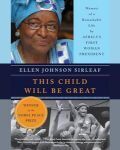
Johnson-Sirleaf, Ellen. This Child Will Be Great: Memoir of a Remarkable Life by Africa's First Woman President (Harper, 2009).
In January 2006, after the Republic of Liberia had been racked by fourteen years of brutal civil conflict, Ellen Johnson Sirleaf—Africa's "Iron Lady"—was sworn in as president, an event that marked a tremendous turning point in the history of the West African nation. In this stirring memoir, Sirleaf shares the story of her rise to power, including her early childhood; her experiences with abuse, imprisonment, and exile; and her fight for democracy and social justice. She reveals her determination to succeed in multiple worlds, from her studies in the United States to her work as an international bank executive, to campaigning in some of Liberia's most desperate and war-torn villages and neighborhoods. It is the tale of an outspoken political and social reformer who fought the oppression of dictators and championed change. By telling her story, Sirleaf encourages women everywhere to pursue leadership roles at the highest levels of power, and gives us all hope that we can change the world.
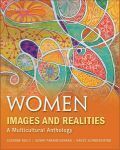
Kesselman, Amy, Lily D McNair, Nancy Schniedewind. Women: Images & Realities, A Multicultural Anthology (McGraw Hill, 2006).
This best-selling anthology is a unique introduction to feminism and women’s studies. It presents a multidisciplinary collection of academic essays and analyses, personal narratives, and fiction and poetry about women’s lives. The selections illustrate the variety of women’s experiences, primarily in the United States, considering both commonalities and differences among women and appreciating women’s diverse approaches to living and fostering change.
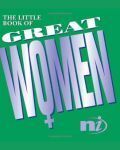
The Little Book of Great Women. Oxford: New Internationalist Publications, 2000.
Quotations from the women who changed the world, or had the guts to try. "For most of history, Anonymous was a woman," wrote Virginia Woolf. Here are the inspiring words from those who made their names known, and voices heard.
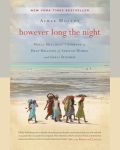
Molloy, Aimee. However Long the Night: One American Woman's Journey to Help Millions of African Women and Girls Triumph (HarperOne, 2013).
In However Long the Night, Aimee Molloy tells the unlikely and inspiring story of Molly Melching, an American woman whose experience as an exchange student in Senegal led her to found Tostan and dedicate almost four decades of her life to the girls and women of Africa.
This moving biography details Melching's beginnings at the University of Dakar and follows her journey of 40 years in Africa, where she became a social entrepreneur and one of humanity's strongest voices for the rights of girls and women.
Inspirational and beautifully written, However Long the Night: Molly Melching's Journey to Help Millions of African Women and Girls Triumph is a passionate entreaty for all global citizens.
This book is published in partnership with the Skoll Foundation, dedicated to accelerating innovations from organizations like Tostan that address the world's most pressing problems.
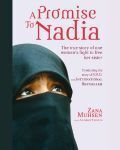
Muhsen, Zana. A Promise to Nadia (Little, Brown, 2000).
Ten years ago Zana Muhsen escaped from the life of slavery in Yemen into which her father had sold her as a child bride, leaving behind her baby son, her sister Nadia, and Nadia's two small children. As she described so powerfully in her book Sold, Zana made a solemn vow to Nadia that she would do everything she possibly could obtain their freedom as well. This book tells the extraordinary story of those 10 years, of the family's lone campaign against the Yemeni authorities, of the refusal of their own government in London to help, and of the despair that forced them into a desperate deal with an unofficial military-style organization specializing in the recovery of abducted children.
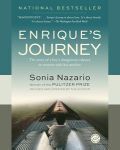
Nazario, Sonia. Enrique's Journey (Random House, 2006).
Now updated with a new Epilogue and Afterword, photos of Enrique and his family, an author interview, and more, this is the definitive edition of a classic of contemporary America.
Based on the Los Angeles Times newspaper series that won two Pulitzer Prizes, one for feature writing and another for feature photography, this astonishing story puts a human face on the ongoing debate about immigration reform in the United States. Now a beloved classic, this page-turner about the power of family is a popular text in classrooms and a touchstone for communities across the country to engage in meaningful discussions about this essential American subject.
Enrique’s Journey recounts the unforgettable quest of a Honduran boy looking for his mother, eleven years after she is forced to leave her starving family to find work in the United States. Braving unimaginable peril, often clinging to the sides and tops of freight trains, Enrique travels through hostile worlds full of thugs, bandits, and corrupt cops. But he pushes forward, relying on his wit, courage, hope, and the kindness of strangers. As Isabel Allende writes: “This is a twenty-first-century Odyssey. If you are going to read only one nonfiction book this year, it has to be this one.”
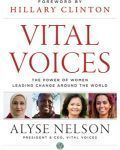
Nelson, Alyse. Vital Voices: The Power of Women Leading Change around the World (Jossey-Bass, 2012).
How women around the world are leading powerful change
Women's progress is global progress. Where there is an increase in women's university enrollment rates, women's earnings, and maternal health, and a reduction in violence against women, we see more prosperous communities, better educated, healthier families, and the preservation of equal human rights. Yet globally, women remain the most consistently under-utilized resource. Vital Voices calls for and makes possible transformative leadership around the world.
In Vital Voices, CEO Alyse Nelson shares the stories of remarkable, world-changing women, as well as the story of how Vital Voices was founded, crossing lines that typically divide. For 15 years, Vital Voices has brought together women who want to enable others to become change agents in their governments, advocates for social justice, and supporters of democracy. They equip women with management and business development skills to expand their enterprises and create jobs in their communities. Their voices, stories, and hard-earned lessons—shared here for the first time—are deeply authentic and truly vital.
Features interviews and first-person accounts of global leaders, such as Ellen Johnson Sirleaf, president of Liberia, and Aung San Suu Kyi, Nobel Prize-winning Burmese pro-democracy leader, as well as business leaders
Draws on the work of the Vital Voices, the organization founded by Hillary Clinton in 1997 as a government initiative that transformed into a leading non-profit, which enables a network of 10,000 emerging women leaders in politics, human rights, and economic development in 127 countries. These women have gone on to mentor and train more than 500,000
Focuses on the key elements of the Vital Voices five-step model of transformational leadership, including how to find a voice, lead with purpose, cross lines that divide, and more
Through the firsthand accounts of trail-blazing leaders, Vital Voices introduces unforgettable, inspiring women who are shaping our world.
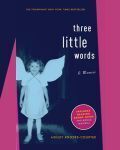
Rhodes-Courter, Ashley. Three Little Words: A Memoir (Atheneum, 2008).
An inspiring true story of the tumultuous nine years Ashley Rhodes-Courter spent in the foster care system, and how she triumphed over painful memories and real-life horrors to ultimately find her own voice. "Sunshine, you're my baby and I'm your only mother. You must mind the one taking care of you, but she's not your mama." Ashley Rhodes-Courter spent nine years of her life in fourteen different foster homes, living by those words. As her mother spirals out of control, Ashley is left clinging to an unpredictable, dissolving relationship, all the while getting pulled deeper and deeper into the foster care system.Painful memories of being taken away from her home quickly become consumed by real-life horrors, where Ashley is juggled between caseworkers, shuffled from school to school, and forced to endure manipulative, humiliating treatment from a very abusive foster family. In this inspiring, unforgettable memoir, Ashley finds the courage to succeed - and in doing so, discovers the power of her own voice.
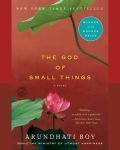
Roy, Arundhati. The God of Small Things: A Novel (HarperPerennial, 1998).
Compared favorably to the works of Faulkner and Dickens, Arundhati Roy’s debut novel is a modern classic that has been read and loved worldwide. Equal parts powerful family saga, forbidden love story, and piercing political drama, it is the story of an affluent Indian family forever changed by one fateful day in 1969.
The seven-year-old twins Estha and Rahel see their world shaken irrevokably by the arrival of their beautiful young cousin, Sophie.
It is an event that will lead to an illicit liaison and tragedies accidental and intentional, exposing “big things [that] lurk unsaid” in a country drifting dangerously toward unrest. Lush, lyrical, and unnerving, The God of Small Things is an award-winning landmark that started for its author an esteemed career of fiction and political commentary that continues unabated.
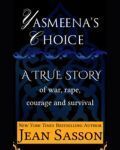
Sasson, Jean P. Yasmeena's Choice: A True Story of War, Rape, Courage and Survival (Sasson Corporation, 2013).
This is the true story of Yasmeena, a bright and beautiful young Lebanese woman who was imprisoned in Kuwait during the first Gulf War. Yasmeena's shocking journey is a tale of the madness of war, of the sexual brutality unleashed by chaos, and of one woman’s courage to stand in danger’s way to aid her fellow sufferers.
This is an explicit, graphic, and honest book. It is for mature audiences only. Jean Sasson has spent her career sharing the personal stories of courageous Middle Eastern women. PRINCESS: Life Behind the Veil in Saudi Arabia was an international bestseller. It has become a classic, taught in colleges and high schools and devoured by anyone who aspires to understand the Middle East. Yasmeena was quite literally an innocent abroad. She was a college educated, English-speaking flight attendant graced with an unusual amount of confidence and sophistication. She was also a virgin and a conservative Muslim daughter and sister. When Yasmeena's flight out of Kuwait was delayed, it was because Saddam Hussein had just invaded Kuwait. Iraqi soldiers threw her into a woman's prison where the guards committed ghastly sexual attacks and tortured the women in excruciating ways. After Yasmeena was brutalized by the captain of the prison, she thought she was the most unfortunate woman on earth. But that was before she befriended Lana, whose brutal rapist took glee in inflicting hurt.
Yasmeena used her position as the captain's favorite to protect her friend, though she also was forced into a wrenching decision. YASMEENA'S CHOICE reads like a thriller. As the Americans and other allies march into Kuwait and the Iraqis flee, Yasmeena escapes. Eventually she finds a safe harbor where Sasson interviews her and records every horrific element of her experience. Sasson has wanted to write this story for many years. But she knew that the sexual explicitness and violence would make the tale difficult to publish. A year ago, Yasmeena's story and the choices she was forced to make invaded Sasson’s dreams. She realized that now was the right time to share the story. And so here it is, Sasson's testament to an articulate, angry, brave young woman who not only survived but who was eager to share her story with the world.
PRAISE FOR JEAN SASSON'S WORK:
Absolutely riveting and profoundly sad...
~ People magazine
A chilling story...a vivid account of an air-conditioned nightmare...
~ Entertainment Weekly
Must-reading for anyone interested in human rights.
~ USA Today
Shocking...candid...sad, sobering, and compassionate...
~ San Francisco Chronicle
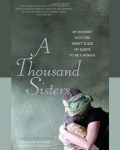
Shannon, Lisa. A Thousand Sisters: My Journey of Hope into the Worst Place on Earth to Be a Woman (Seal, 2010).
Lisa Shannon had what some would call a good lifeó her own business, a successful fiancé, a secure home. Then one day in 2005, shortly after her father’s death, an episode of Oprah changed everything. The show about women in the Congo depicted atrocities too horrible to comprehend: millions dead, women gang-raped and tortured, children starving and dying in shocking numbers. That day Lisa woke up to her dissatisfaction with the ì good” life and to her role as an activist and a sister.
She created a foundation called Run for Congo Women, with the goal to raise money to sponsor 30 Congolese women. What started as a solo 30-mile run has now grown into a national organization in connection with Women for Women International. Run for Congo Women holds fundraising runs in four countries and ten states, and continues to raise money and awareness.
In A Thousand Sisters, Lisa shares firsthand accounts of her experiences visiting the Congo, the women she’s helped, and the relationships she’s formed. With compelling stories of why she remains committed to this cause, Lisa inspires her audience to reach out and help as well, forming a sisterhood that transcends geographic boundaries.
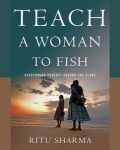
Sharma, Ritu. Teach a Woman to Fish (Palgrave Macmillan, 2014).
As the old axiom goes: “Give a man a fish and he eats for a day. Teach a man to fish and he eats for a lifetime.” But teach a woman to fish, and everyone eats for a lifetime. In this firsthand account, Ritu Sharma shares how women can, and are, overcoming the forces that keep them in poverty.
She chronicles her travels through four countries— Sri Lanka, Burkina Faso, Honduras, and Nicaragua—and the intimate interactions she had with the women living there. Sharma’s story not only details her experiences, but also looks at the broader systems that prevent women from leaving poverty behind. From lack of property rights and government corruption to the scarcity of basic infrastructure like roads, these women are restricted by the external limitations placed upon them.
Sharma draws from her experiences to frame a larger exploration of how Americans can be instrumental in helping women break free of restrictive systems and begin to facilitate women’s upward mobility.
Written in her engaging personal voice, Teach a Woman to Fish provides an insider’s look at women in poverty, how Washington works, and how change really happens—from the United States to the rest of the world.
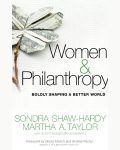
Shaw-Hardy, Sondra C., Martha A. Taylor, and Buffy Beaudoin-Schwartz. Women and Philanthropy: Boldly Shaping a Better World (Jossey-Bass, 2010).
Women and Philanthropy provides unique and meaningful stories of scores of women philanthropists and describes how these women are making a difference through giving, partnering, leveraging, role modeling, and asking, and will help all women on their philanthropic journey, as well as nonprofits who are working with women as donors."
~ Jennifer Buffett, philanthropist and president, Novo Foundation, New York, New York
"Written for every development officer who wants to gain greater insight into charitable giving by women, this thorough, engaging book makes a compelling case for the importance of engaging women as volunteers and as donors.
~ John Lippincott, president, Council for Advancement and Support of Education, Washington, D.C.
With in-depth information about the importance of diversity to women's giving and how the philanthropy of women has and will shape the future of the nonprofit sector, this critically important book provides insightful information for donors and nonprofit leaders alike."
~ Emmett D. Carson, CEO and president, Silicon Valley Community Foundation, Mountain View, California
Sondra, Martha, Buffy and their colleagues have led the way in examining the role and impact of women in giving, volunteering, and social involvement. Their latest volume is a must-read not only for anyone working in the nonprofit sector, but also for any donor, regardless of gender.
~ Paulette V. Maehara, president and CEO, Association of Fundraising Professionals (AFP), Alexandria, Virginia
Women and Philanthropy provides a look at what has been, but more importantly, provides a road map for what is possible for women as donor leaders in changing the face of philanthropy.
~ Christine Grumm, president and CEO, Women's Funding Network, San Francisco, California
A wise and exceptional book that breaks essential ground in the world of philanthropy by delving into the issues specific to women.
~ Charles W. Collier, senior philanthropic advisor, Harvard University, and author, Wealth in Families, Cambridge, Massachusetts
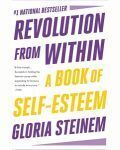
Steinem, Gloria. Revolution from Within: A Book of Self-esteem (Little, Brown, 1992).
The well-know women's rights activist and feminist connects the external revolution to an internal revolution of spirit and consciousness, offering readers parables from the lives of figures as diverse as Mahatma Gandhi and Julie Andrews.
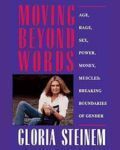
Steinem, Gloria. Moving beyond Words (Simon & Schuster, 1994).
From one of the most influential women in the country and bestselling author of Revolution from Within comes a collection of provocative, entertaining, mind-changing essays. The six pieces, three of which have never been published before, explode common assumptions and propose radical new ways of looking at human possibilities.
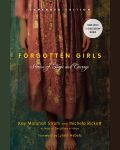
Strom, Kay Marshall, and Michele Rickett. Forgotten Girls: Stories of Hope and Courage (IVP, 2009).
Think of the little girls you know: your daughter, a niece, a friend's child. And then think about this: little girls are tossed away every day. All over the world. In fact, statistics show that the world's most oppressed are overwhelmingly female.
Moved by their plight, Kay Marshall Strom and Michele Rickett took a trip across continents to partner with ministries working to help females and to interview girls in some of the most difficult places in the world. These pages hold those girls' stories: stories of deep pain and suffering, inspiring courage, and incredible hope. They are the stories of girls who have discovered their value in God's eyes, in the midst of cultures that have rejected them. They are stories of rescue and redemption by God working through compassionate people--people like you.
These pages might hold pieces of your story as well, as the authors invite you to pray and speak on behalf of the millions of women and girls who still need to know how much they're worth. For each of the five sections of the book--physical suffering, education, sexual protection, prison and war, and spiritual life--the authors provide specific, practical action steps and prayer points that allow you to get involved as God leads.
Opening these pages will open your eyes to situations you couldn't imagine, to places you've probably never been and to young girls--not so different from the ones you know--who are dearly loved by God. And our powerful God will help us as we read, speak and pray on their behalf, that the forgotten might become free.
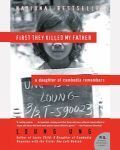
Ung, Loung. First They Killed My Father: A Daughter of Cambodia Remembers (HarperCollinsPublishers, 2000).
One of seven children of a high-ranking government official, Loung Ung lived a privileged life in the Cambodian capital of Phnom Penh until the age of five. Then, in April 1975, Pol Pot's Khmer Rouge army stormed into the city, forcing Ung's family to flee and, eventually, to disperse. Loung was trained as a child soldier in a work camp for orphans, her siblings were sent to labor camps, and those who survived the horrors would not be reunited until the Khmer Rouge was destroyed.
Harrowing yet hopeful, Loung's powerful story is an unforgettable account of a family shaken and shattered, yet miraculously sustained by courage and love in the face of unspeakable brutality.
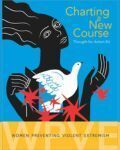
Women Preventing United States Institute of Peace. Women Preventing Violent Extremism
The Women Preventing Violent Extremism Thought for Action Kit is intended to engage discussions on key issues related to the role of women and preventing violent extremism (PVE). This document is for policy makers, practitioners and academics who are interested in understanding “why gender matters” in preventing violent extrmism. We think of it as a thought kit more than a tool kit, that is— a collection of experts’ essays and practical exercises designed to help guide local activists and practitioners to engage in reflection and dialogue on violent extremism. In addition, we hope to bring greater awareness to the diverse set of experiences that women and women’s organizations are dealing with violent extremist ideologies.
United Nations Security Council Resolution (UNSCR) 1325 (2000) was groundbreaking in that it provided strong support for greater attention to the role of women in international peace and security. It acknowledges the inordinate impact of violent conflict on women and recognizes that women’s empowerment and gender equality are critical to international peace and security. The UN Security Council fully recognizes the critical link between the Women, Peace and Security agenda as laid out in UNSCR 1325 and the role women could and should play in preventing violent extremism.
This document has three sections. The first section examines the question of gender and why it is important to consider both men and women, and the dynamics of gender roles in society when addressing violent extremism. The second section deals specifically with women and the underlying forces of extremist violence. It invites thinking about women as actors in preventative efforts as well as perpetrators of terrorist acts. Finally, the third section raises issues related to the various ways in which to engage communities, including members of the security sector.
Each section opens with a brief introductory background, followed by short essays by some of the leading experts in this field. Each section also includes practical exercises that may prove useful for training and further dialogue. (Read the PDF)
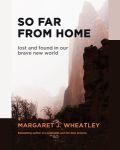
Wheatley, Margaret J. So Far from Home: Lost and Found in Our Brave New World (Berrett-Koehler, 2012).
AN INVITATION TO WARRIORSHIP: I wrote this book for you if you offer your work as a contribution to others, whatever your work might be, and if now you find yourself feeling exhausted, overwhelmed, and sometimes despairing even as you paradoxically experience moments of joy, belonging, and greater resolve to do your work.
This book describes how we can do our good work with dedication, energy, discipline, and joy by consciously choosing a new role for ourselves, that of warriors for the human spirit.
This book contains maps of how we ended up in a world nobody wants—overtaken by greed, self-interest, and oppressive power—the very opposite of what we worked so hard to create. These maps look deeply into the darkness of this time so that we can develop the insight we need to contribute in meaningful ways.
This book provides maps for the future, how we can transform our grief, outrage, and frustration into the skills of insight and compassion to serve this dark time with bravery, decency, and gentleness.
As warriors for the human spirit, we discover our right work, work that we know is ours to do no matter what. We engage wholeheartedly, embody values we cherish, let go of outcomes, and carefully attend to relationships. We serve those issues and people we care about, focused not so much on making a difference as on being a difference.
Winner of the 2013 Nautilus Silver Award in the category of Inner Prosperity/Right Livelihood.
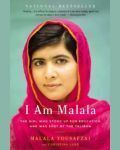
Yousafzai, Malala, and Christina Lamb. I Am Malala: The Girl Who Stood up for Education and Was Shot by the Taliban (Little, Brown and Company, 2013).
When the Taliban took control of the Swat Valley in Pakistan, one girl spoke out. Malala Yousafzai refused to be silenced and fought for her right to an education.
On Tuesday, October 9, 2012, when she was fifteen, she almost paid the ultimate price. She was shot in the head at point-blank range while riding the bus home from school, and few expected her to survive.
Instead, Malala's miraculous recovery has taken her on an extraordinary journey from a remote valley in northern Pakistan to the halls of the United Nations in New York. At sixteen, she has become a global symbol of peaceful protest and the youngest nominee ever for the Nobel Peace Prize.
I AM MALALA is the remarkable tale of a family uprooted by global terrorism, of the fight for girls' education, of a father who, himself a school owner, championed and encouraged his daughter to write and attend school, and of brave parents who have a fierce love for their daughter in a society that prizes sons.
I AM MALALA will make you believe in the power of one person's voice to inspire change in the world. Palestinian peaceworker Ibtisam Mahameed explains why women need to be at the heart of peace negotiations.
Ultimately, says Mahameed, men and women must work together if peace is to be fully realized. Wise women will save the World: the following books on this bibliography that led to women, peace, taking a stand and understanding.
Ibtisam Mahameed is a Palestinian peaceworker living in a small Arab-Palestinian community in Fureidis, northern Israel. Her family was originally from the Palestinian village of Tantura on the Mediterranean coast, which was destroyed during the 1948 War of Independence. Mahameed has worked for many years counseling Arab and Jewish women regarding the status of females in Middle Eastern society. As a religious Muslim woman, she promotes inter- faith respect and understanding by encouraging Palestinian, Jewish, Druze, and Christian women to learn about each other's religions and cultures. Mahameed, a member of Jerusalem Peacemakers, is also on the board of Middleway, an NGO for the promotion of compassion and non-violence, and helped found the Women's Interfaith Encounter, a program of the Interfaith Encounter Association.

